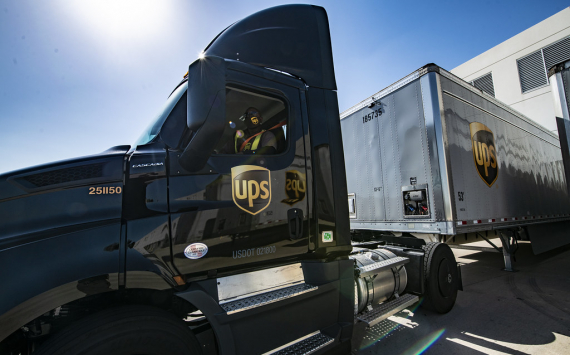
UPS Plunges
United Parcel Service (UPS) recently announced a substantial workforce reduction in response to declining package volumes worldwide. CEO Carol Tomé highlighted this move during an earnings call, aiming to tackle financial challenges and save around $1 billion.
In the wake of UPS's fourth-quarter earnings report, which revealed a 7.8% decline in revenue to $24.9 billion, concerns have been raised about its operational efficiency. Notably, this figure fell short of analysts' predictions, signaling a need for strategic adjustments within the company. The decline in net income from $3.45 billion to $1.61 billion further underscores the challenges UPS faces in maintaining profitability amidst shifting market dynamics.
The company attributes its financial downturn to a 7.4% decrease in average daily volume domestically and an 8.3% drop internationally, with specific weaknesses noted in European markets. Additionally, logistical challenges in key shipping regions, such as the Red Sea, Panama, and Suez Canals, have further complicated UPS's operational efficiency.
CEO Carol Tomé acknowledges the broader challenges facing the logistics industry, including fluctuating demand and a changing economic landscape. Despite these obstacles, she emphasizes UPS's commitment to strategic focus and adaptability, stating, "Through it all, we remained focused on controlling what we could control, stayed on strategy, and strengthened our foundation for future growth."
In addition to workforce reductions, UPS is exploring further strategic realignment, including the potential sale of its Coyote truck brokerage business, deemed as highly cyclical with considerable earnings volatility. Furthermore, UPS plans to reintroduce a traditional work model, requiring employees to return to the office five days a week in 2024.
UPS anticipates revenue between $92 billion and $94.5 billion in 2024, with an adjusted operating margin of around 10% to 10.6%, showcasing its proactive approach in adapting to changing market dynamics while focusing on strategic goals.
UPS's layoffs add to a trend seen in major companies like eBay, Wayfair, and Amazon, all adjusting to economic uncertainty post-pandemic. It reflects a broader industry recalibration amid global economic shifts.











































